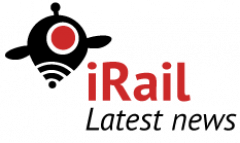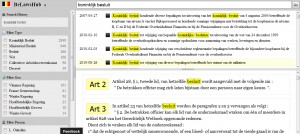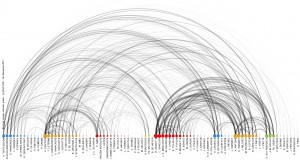BeLaws brings the Belgian law to the web 2.0
BeLaws, a project under the iRail NPO, brings the Belgian law to the web 2.0. The online applications “prettifies” the publications in the official Belgian Gazette, making them easier to search and read. This innovative website can be invaluable for journalists as well as for politicians.
On the homepage, the database can be searched. The results can then be filtered by type of text (decree, resolution, law, …), geographical area, and the politicians who signed the law. The displayed search result is formatted tidily, making the text more readible, but the original source text is available as well. Don’t hesitate to give it a try, by searching for “onderwijs” (education) for example.
Other than searching the Belgian law, some statistics are also available. An interactive diagram shows which politicians have signed laws together, based on the available data in the database. This way, it becomes clear to what extent certain parties or individual politicians work together with other parties and politicians, including over the language border.
The system is in bèta, so it will be refined. Some laws are still missing from the database, and searching is not yet possible in all of the country’s official languages. When the concept will be further developed, missing laws will be added and searching the database in French and German will be enabled.
The website is developed by Tim Esselens, and any questions can be directed to Pieter of iRail (+32 486 74 71 22 or through the contact form on this website).
iRail Summer of code
iRail Summer of code (iSoc) is an event organised by the iRail NPO (vzw/asbl). During the month of July, a couple of enthousiastic students and iRail members work together in the Hackerspace in Ghent, on several innovative projects concerning mobility. An application visualising commutes, an online meetingsite accompanied by an app to get together on the train, tram or bus, extending the irail.be service by implementing the iRail API on De Lijn, … All these projects and more are made possible by our partners.
Other than that, iSoc also organises workshops in July. All interested parties are welcome to come listen to the iSoc students or other speakers.
By not only working on projects individually but also helping and inspiring each other, this event aspires to share knowledge, ideas and visions, keeping the focus on durable mobility and open data.
Hack the government!
Last Saturday iRail attended the “hack de overheid” conference, which translates into “hack the government”, in Amsterdam, the Netherlands. It’s extremely striking how many officials came to this event asking for programmers to do something with government data. Amongst the people in the audience there were programmers, journalists, designers, politicians, datajournalism enthusiasts… all eager to start working with these new datasets.
Open data is not something magical that will increase innovation and which will grow apps in the wild. It is however needed to be able to innovate. There are two ways a programmer will start developing an application based on data: 1. (s)he needs it in an application he’s building and starts browsing for this. 2. (s)he saw this data is available and though it would be neat to have an application which combines a couple of other datasets with this one. In this article I will only discuss the latter. Open data in terms of innovation and democracy is very important for this first point, the latter however is what makes people want to open their data: on short-term there will be cool applications.

iRail at Hack De Overheid Amsterdam (CC by-sa k4rp)
Apps for Amsterdam organised by the “Hack de overheid”-team was a Bouncy Castle huge success. The local government from Amsterdam explained what data they had available and were opening at that very moment, journalists were writing about this movement that will save democracy and the free market as such and programmers were coding to win the bounty raised by the city.
Apps for New York worked. Apps for Amsterdam worked. Let’s get this format to most innovative, so they say (don’t shoot the blogger), city of Belgium. Apps for Ghent should become the first of a series Apps for Belgium. What do we need to organise this event? You, probably:
- Sponsors – a free event needs money from sponsors.
- Location – do you know a good location that’s available?
- Datasets – Are you looking for the ideal moment to release your data in the wild?
- Datajournalists – Are you looking to investigate datasets for your articles?
- Journalists/Bloggers – if you want to write about us, you’re welcome too!
- Politicians – Sadly, this is in many cases a political problem and we need politicians to fix this!
- Programmers – last but not least
Contact me: pieter@irail.be or +32 486 74 71 22 if you want to help organising/sponsor/… this event!






